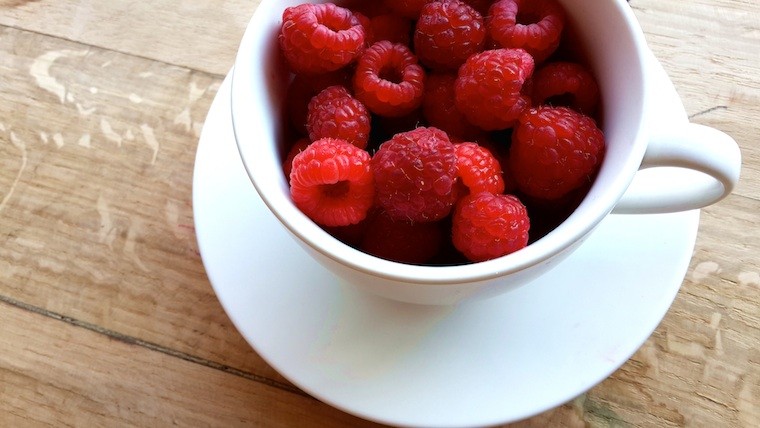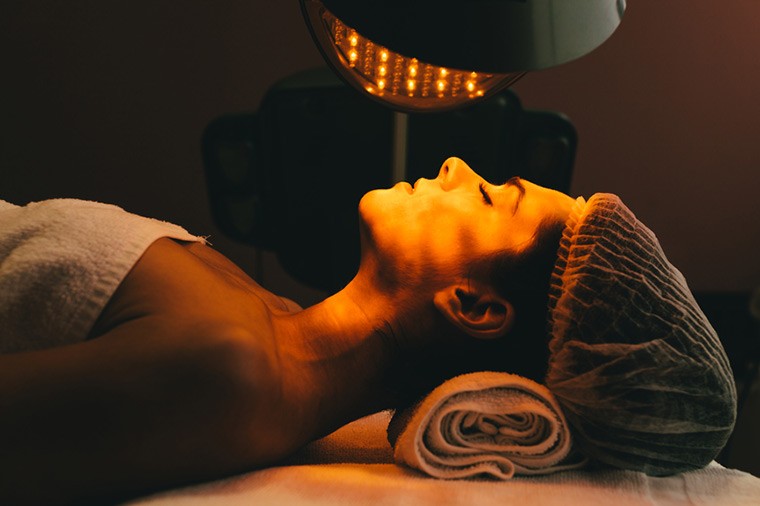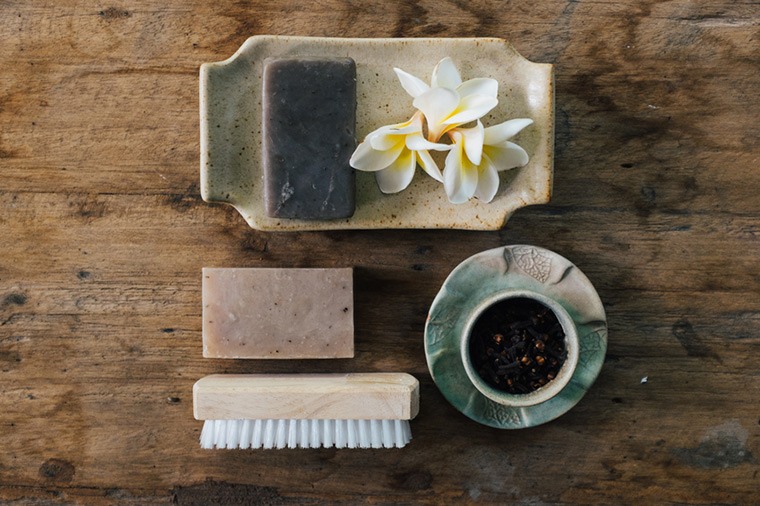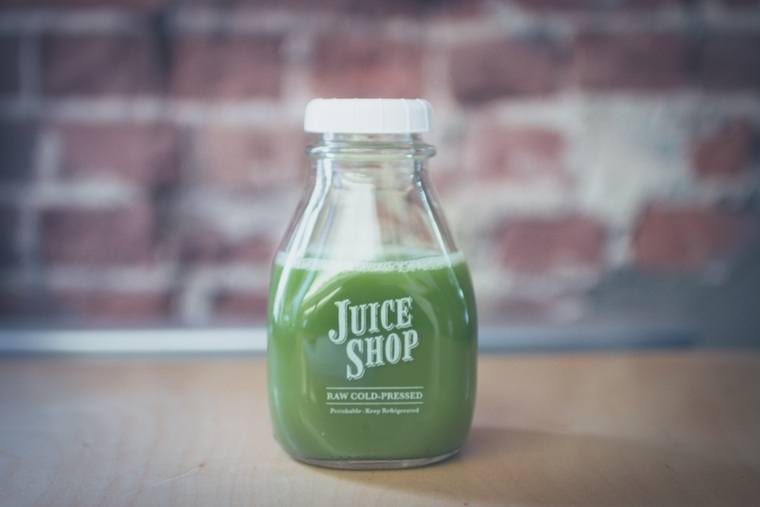Guess which skin-care tactic is easier—and way more logical?
Vargas says it’s important to start thinking about your skin’s tomorrow way before you notice your first sun spot. She adds that these hard-to-fade splotches, along with enlarged pores, tired-looking eyes, and skin that's lost its elasticity (and droops along the jawline) are common complaints among clients who haven’t taken preventative measures.
So when should you be thinking about protecting your skin—and not just cleansing and moisturizing it?
“Your early 20s is the time to start taking skin care more seriously and realizing it’s a lifestyle you will be rewarded for," she says. It's about doing things that nurture your skin's health, she emphasizes, not obsessing about getting wrinkles someday (which are so not the enemy btw).
If you’re in the 20-something (or so) camp, think of these tips to follow as a trust fund for your skin—all ways of ensuring it’s set up for a bright future. (Glowy, even!)
Keep reading for Joanna Vargas’ guide to all-natural products and rituals for aging skin.

1. Seriously, wear sunscreen.
If you’re a regular Well+Good reader this will sound very familiar, but it bears repeating. “The best anti-aging tip is to wear sunscreen at all times—even if you’re just walking to work,” stresses Vargas. “I try and remind people that although everyone feels good in the sun, you wind up complaining about everything it does to your skin later in life.” If you still haven’t made this a habit, pick up one of these awesome natural sunscreens, stat.

2. Seek out strengthening and nourishing ingredients
Vargas approaches skin care in the same way a nutritionist looks at food. “Skin tends to have basic nutritional needs [as we age], and ingredients are a big part of making that happen,” she says. Vargas says that if you’re currently dealing with acne, you should address that before aging—but otherwise, all of the following ingredients work for any age.
- Antioxidants: “Açai, argan [oil], vitamins A, C, and E—all of these are antioxidants,” says Vargas. “They basically prevent the skin from mutating when sun or pollution hits it, which can result in loss of elasticity and collagen and uneven pigment.” Vargas’ own Vitamin C Face Wash, Daily Serum, and Rejuvenating Serum all contain loads of these natural complexion bodyguards, as do Kypris’ Antioxidant Dew serum and Raw is Everything's Antioxidant Treatment, made with raspberry seed oil.
- Olive oil: Facial oils like jojoba and rosehip may be hot right now, but Vargas is a fan of good ol’ olive oil for skin softening and reducing inflammation. (Turns out, Chloe Grace Moretz was on to something.) “It’s handy for anyone who lives in the toxic environment of the city or is exposed to the sun regularly,” she says. “Olive oil can keep the skin from being so reactive to environmental stressors.” Find it in Vargas’ Rejuvenating Serum, Osmia Organics’ Facial Calibration Serum, and M Picaut's Skin Perfect Moisturiser.
- Peptides: Think of these guys as the personal trainers that help strengthen collagen and elastin, the proteins that give our skin its structure and stretch. “We need these building blocks to help reinforce our collagen, because collagen synthesis [production] wanes with age,” explains Vargas. “Daily use in a cream and weekly in a mask is advisable.” Peptides are a key ingredient in Vargas’ Forever Glow Anti-Aging Face Mask and Revitalizing Eye Cream; they’re also part of Goop by Juice Beauty’s Revitalizing Day Moisturizer and Luzern's Serum Absolut WE3.
- (Plant) stem cells: “Stem cells are clinically proven in certain forms to help stimulate the body's ability to produce collagen,” Vargas says. “This function lessens with age, so we need stem cells to be a part of our daily routine.” Get some from Vargas’ Eden Lift Mask or Juice Beauty’s Stem Cellular collection (both made from fruit-based stem cells).

3. Embrace skin-care technology
Just because you’re not into needles and chemicals doesn’t mean you should avoid medi-spa style machines. “I’m known for being a big fan of technology in treatments,” says Vargas. “We have so many non-invasive options I don’t see any reason to resort to [things like] fillers.”
Vargas recommends a combination of collagen-stimulating micro-current, radio frequency, and LED light treatments for skin, starting around the age of 30. (Some skin pros, Vargas included, even have full-body LED light beds that help build collagen and soften wrinkles from head to toe.)

{{post.sponsorText}}

4. Create at-home spa rituals
As your skin ages, quarterly massages and facials don’t really cut it anymore. Vargas recommends maintaining your skin health in between visits by creating a few rituals in your very own bathroom.
Where to start? “For the body, start dry brushing before your shower every morning,” she says. “It's a great way to exfoliate the body while stimulating collagen production and maintaining elasticity all over. A bonus is that it's also great for cellulite.”
And when it comes to the face, monthly peels are crucial, especially if you’re not getting regular facials. “Peels help restore your glow and resurface the skin,” Vargas explains—The Organic Pharmacy's Enzyme Peel Mask and Tammy Fender’s Epi-Peel are some good, clean options.

5. Feed your face from the inside out
Vargas says a holistic approach to aging skin care—including nutrition—is key. “Food can be medicinal in many ways, since the digestive and lymphatic systems are both responsible for how your skin looks,” she explains. “Dryness, dullness, and skin irritation are all related to what we eat, how we digest, and how well our nutrients are supplied to the skin cells.”
She recommends getting as many greens as possible to help oxygenate the skin, as well as consuming lots of hydrating healthy fats like avocado, flax seed, and olive oil. (Or try one of her glow-boosting smoothie recipes!) And go easy on the sugar and alcohol, says Vargas: “They are both big reasons people lose elasticity early.” Nixing sugar also helps prevent a boatload of life-threatening illnesses—do it, and you'll likely have even more time to enjoy your gorgeous complexion.
Check out some other things you should be doing in your 20s and 30s to prep for a lifetime of good health, according to experts in fitness, nutrition, and mindfulness. And if you're more concerned with fighting acne than wrinkles, here's why scientists say that could be good news for your future complexion.
Loading More Posts...